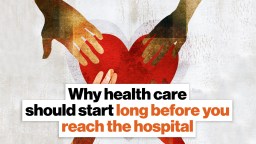Health
All Stories
Don’t get too excited, there is a catch to the study.
Wanna lose weight? How does eating only pineapple and lamb chops sound? Maybe receiving all your sustenance through a feeding tube instead?
A new study has some disturbing implications for rodents who like a nice soda.
The diet claims that people with different blood types process their food differently. Does it pass muster?
A recent Colorado study of ER visits is alarming medical professionals.
Monsanto just lost a major court battle to a man who said he developed cancer after using Roundup.
The discovery could lead to improved treatments for chronic pain.
One group of women still seem to benefit from the popular diet.
A new study from the University of Pittsburgh details how the anti-vaxx movement has divided and grown.
The Human Diagnosis Project project is building the world’s “open medical intelligence” system.
A NASA-led study suggests the stress of spaceflight seems to trigger various types of herpes to reactivate in astronauts.
A new method of growing mini-brains produces some startling results.
The issues that determine your health go way beyond seeing your doctor.
▸
3 min
—
with
Though eggs are back on the menu, some are trying to rewrite the script.
The blood of horseshoe crabs is harvested on a massive scale in order to retrieve a cell critical to medical research. However, recent innovations might make this practice obsolete.
Love to drop F-bombs? Thank the shift to agriculture.
A recent study used MRIs to study the changes in brain activity when trained method actors responded to questions in and out of character.
A bill in New York would let older kids get vaccinations against their parents’ wishes.
100 years ago, you could expect to live to 54. Our luxurious, 80-year-long lives come at a cost.
▸
2 min
—
with
Using a new process, a mini-brain develops retinal cells.
Access to trauma care is a race issue. It shouldn’t be.
Just because the keto diet is an effective weight-loss tool doesn’t mean everyone should try it.
The answer can be found several thousand years ago, in the Roman city of Cyrene.
More vaccine-autism facts for the fact-averse.
The Oedipal complex, repressed memories, penis envy? Sigmund Freud’s ideas are far-reaching, but few have withstood the onslaught of empirical evidence.
Recently, “the London patient” became the second person in history to be cured of HIV. Now, “the Düsseldorf patient” appears to be the third, with the possibility of more on the way.
The quick-acting drug could usher in a new era of treatment for depression.
The promising news comes 12 years after the “Berlin patient” became the world’s first person to be cured of the deadly virus.





























